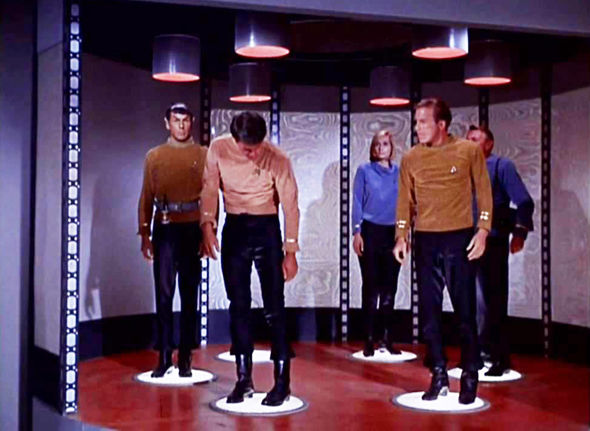

The Teletransporter Paradox: After using a teletransporter, you feel exactly the same at your destination. But what if you found out that the original you wasn't disintegrated and still exists? Are there now two "you"s? Which one is the real you?
The Teletransporter Paradox is a thought experiment that raises philosophical questions about personal identity and the nature of consciousness. It explores the implications of teleportation technology, where an individual's physical body is scanned, disintegrated at the source, and recreated at the destination. The paradox arises when one considers whether the original person still exists and whether there are now two identical individuals.
To delve into this paradox, let's consider two perspectives: the psychological view and the physical view.
1. Psychological View:
According to the psychological view of personal identity, what defines a person is their memories, experiences, and consciousness. If the teletransporter successfully transfers all of these aspects to the recreated body at the destination, then the person who arrives there would have the same psychological identity as the original person. From this perspective, the person who arrives at the destination would be considered the "real you" because they possess the same thoughts, memories, and consciousness.
For example, imagine you step into a teletransporter and arrive at your destination feeling exactly the same. You have all the memories of your past, recognize your loved ones, and possess the same personality traits. In this case, you would consider yourself to be the "real you" because your psychological identity remains intact.
2. Physical View:
The physical view of personal identity focuses on the continuity of the physical body. According to this perspective, if the original body is not disintegrated and still exists alongside the recreated body, then there would indeed be two physically identical individuals. However, this raises the question of which one is the "real you."
Consider this scenario: You step into the teletransporter, and instead of disintegrating, the original you is duplicated at the destination. Now there are two identical individuals, both claiming to be the "real you." Each person has the same memories, experiences, and consciousness. From a physical standpoint, there is no inherent difference between the two bodies.
In this case, it becomes challenging to determine which one is the "real you" based solely on physicality. The physical view of personal identity fails to provide a clear answer in this scenario.
It is important to note that the Teletransporter Paradox is a philosophical thought experiment and not a reflection of any existing technology. As of now, teleportation remains purely hypothetical, and its implications on personal identity are subject to philosophical debate.
In conclusion, the Teletransporter Paradox raises thought-provoking questions about personal identity. While the psychological view suggests that the person who arrives at the destination with their consciousness and memories intact is the "real you," the physical view struggles to provide a definitive answer when faced with the existence of two physically identical individuals. Ultimately, the resolution to this paradox lies in personal beliefs and philosophical interpretations.
Related Posts
© 2026 Invastor. All Rights Reserved

User Comments